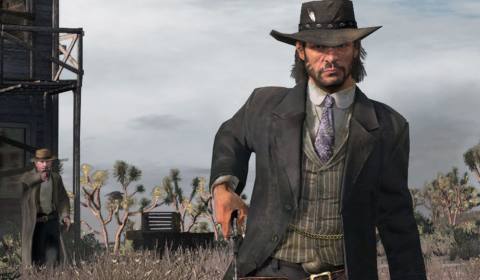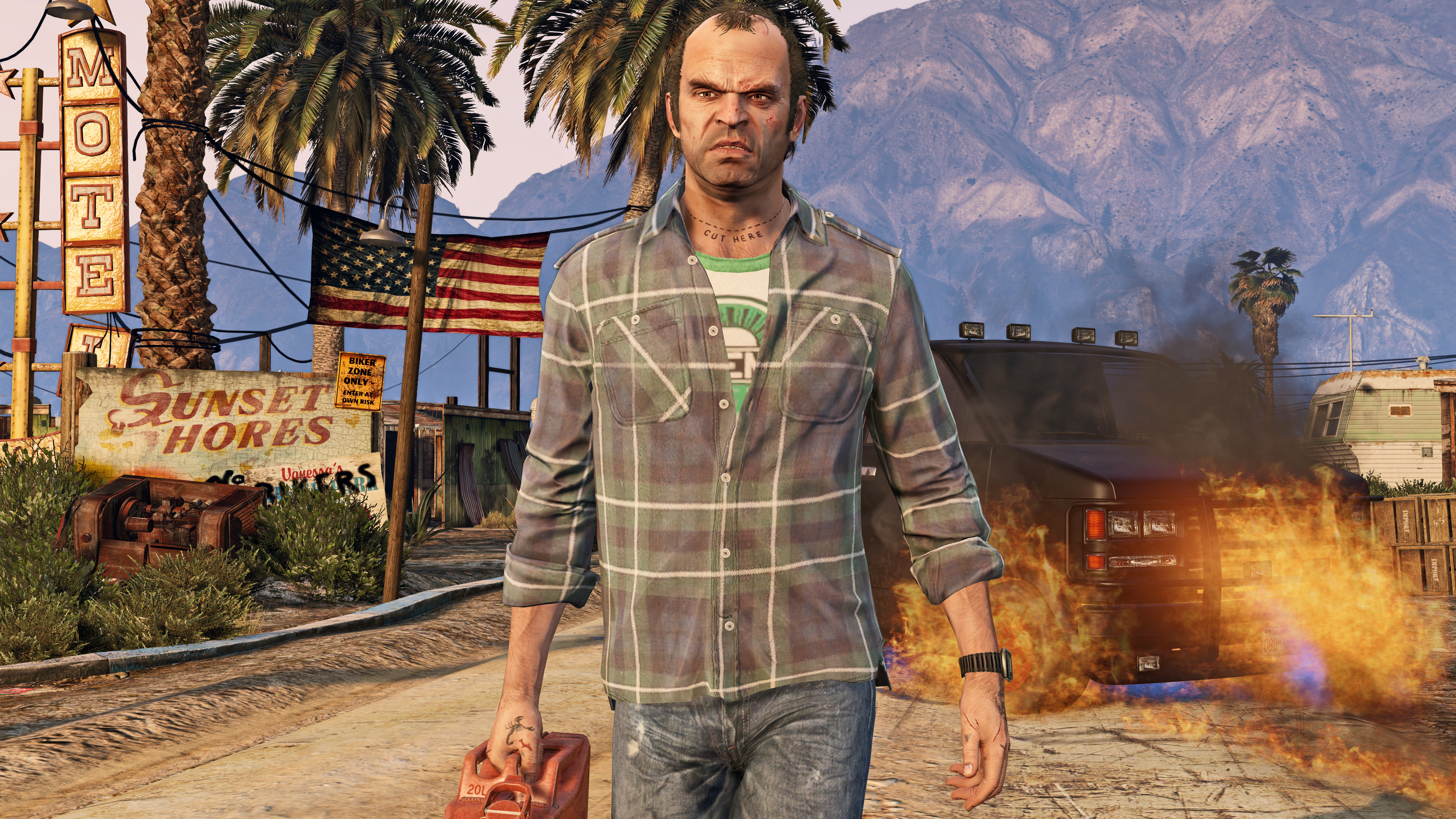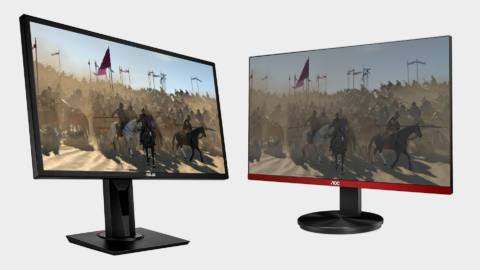I’m sure you don’t need me to tell you, but people are pretty excited for Grand Theft Auto 6. At time of writing, Rockstar’s lone GTA 6 trailer is sitting at a pretty 213 million views on YouTube, and all those millions of viewers are eagerly awaiting that unspecified day in fall 2025 when they’ll be loosed on an unsuspecting Vice City—except for those of us on PC, who are still waiting on an official word from Rockstar for when we might expect our own release.
Of course, that fall 2025 release window is far from guaranteed. We’re firmly in the age of the triple-A release delay, where it’s safe to assume that a game’s launch date is tentative right up to the hour it’s due to unlock on Steam. Strauss Zelnick, CEO of Rockstar’s parent company Take-Two, might be “highly confident” in GTA 6’s launch timeline, but after looking at the last 20 years of Rockstar’s release history, I can’t say that’s a confidence I share.
Reconstructing the exact timelines of Rockstar’s game announcements and eventual releases isn’t the easiest task, even during times when the Internet Archive isn’t actively undergoing a DDOS attack. Final release dates are easy enough to confirm; original release dates and delay announcements, however, aren’t as simple. According to a Pew Research study published earlier this year, 38% of webpages that existed in 2013 are inaccessible today. Almost every gaming news outlet that might’ve reported on Rockstar’s release timelines since the early 2000s has been sold, redesigned, or outright shuttered at least once over the ensuing years, and any one of those scenarios can mean the loss of an entire news archive.
Still, after enough amateur digital archeology and frantic Googling, the history is pretty clear: Every one of Rockstar’s major open world games from the last 20 years was delayed at least once before release. Often, those delays were announced shortly before the game’s original launch window.
Here we go again
Our first of Rockstar’s two decades of delays hit back in Fall 2004, and compared to the release date pushbacks we tend to see today, it was a modest one. As reported by Eurogamer, Rockstar publisher Take-Two announced in its September 2004 financial report that the console release of Grand Theft Auto: San Andreas would be pushed back from October 19, 2004 to October 26, 2004 in the US and from October 22 to October 29 in Europe—a delay of just one week for both regions.
“The title’s launch date was moved to allow additional time for final testing of the game,” Take-Two said in the San Andreas delay announcement, before confirming an eventual PC release for San Andreas that would follow in June 2005. History only ever repeats itself; 20 years later, we’re still waiting on GTA PC port announcements. The delay also came with a confirmation that Grand Theft Auto was coming to Game Boy Advance. It was a simpler time.

From there, Rockstar’s delays started to lengthen. The earliest reporting about Bully said Rockstar originally planned an October 2005 release, but it wouldn’t hit retail until a year later. In the meantime, as IGN reported, Rockstar revealed GTA 4 during an E3 2006 press conference, during which they announced an intended release date of October 16, 2007. According to an archived Kotaku Australia story from August 2007, Take-Two announced two months before its original release date that Niko Bellic’s landing in Liberty City would be delayed until Q2 2008. GTA 4’s final April 29, 2008 release date, just over a half a year later than originally planned, was confirmed a few months later.
GTA 4 was the last time Rockstar’s game announcements included specific release dates.
Next up, Rockstar went all in on cowboys with Red Dead Redemption, announced in February 2009 with an initial release window of “autumn this year,” according to IGN’s coverage. It wasn’t until autumn had mostly passed that Rockstar announced the first of Red Dead Redemption’s two delays, shifting its release date to April 27, 2010.
A month before Red Dead Redemption was due to mosey into town, Rockstar announced another delay, placing its final release date in May 2010. “We think it’s a better release window and it gives us a few more weeks to market,” Zelnick said while announcing the delay in a quarterly financial report. Like GTA 4, Red Dead Redemption’s delays put its release roughly half a year past its original launch window.
Crunch concerns
GTA 5’s original console releases were only delayed once: After setting an initial Spring 2013 launch window, Rockstar announced in January 2013 that GTA 5 would instead arrive on Xbox 360 and PlayStation 3 on September 17, 2013—once again, around a half-year delay.
GTA 5’s PC release, however, was a prolonged Sisyphean torment. Originally planned to launch alongside the PlayStation 4 and Xbox One versions in Fall 2014, the PC port suffered three delays before its eventual April 2015 release: first in September 2014, then January 2015, and finally in February 2015. In each case, the delay announcement arrived shortly before the expected launch, with the second delay hitting just two weeks before the PC port’s planned January release.

“Moving a release date is never a decision we take lightly and is a choice we make only when we know it is in the best interests of the game and our fans,” Rockstar said in its January 2015 delay announcement.
Most recently, Red Dead Redemption 2’s delays—first from Fall 2017 to Spring 2018, then to October 2018, with a PC release following in Fall 2019—give the impression that Rockstar has settled into a predictable rhythm of delays. Two delays, give or take, seems par for the course, leaving an eventual release that’s somewhere between a six months to a year after it was originally expected.
Am I expecting GTA 6 in 2025? Looking at 20 years of Rockstar delays, I’d be surprised to see it—and I’d be doubly surprised to see a PC release before another year’s past. I’d be thrilled to be wrong, of course, and not just because it’d mean a shorter wait. While you might expect that a delay would provide developers with more breathing room, it often does the opposite.
Delays don’t tend to alleviate development crunch; often, as Jason Schreier wrote for Kotaku back in 2020, delays extend it. Even with Red Dead Redemption 2’s release date pushed back by a year of delays, its development drove Rockstar employees to speak out in 2018 about the “death march” of the company’s pervasive crunch culture.
Thankfully, there are signs that, following a series of leadership departures and replacements, Rockstar’s been working to avoid future crunch by planning development pipelines that are more sustainable for its employees. If GTA 6 gets its own series of delays, we can only hope they’re gentler on the devs than Rockstar’s prior postponements.






